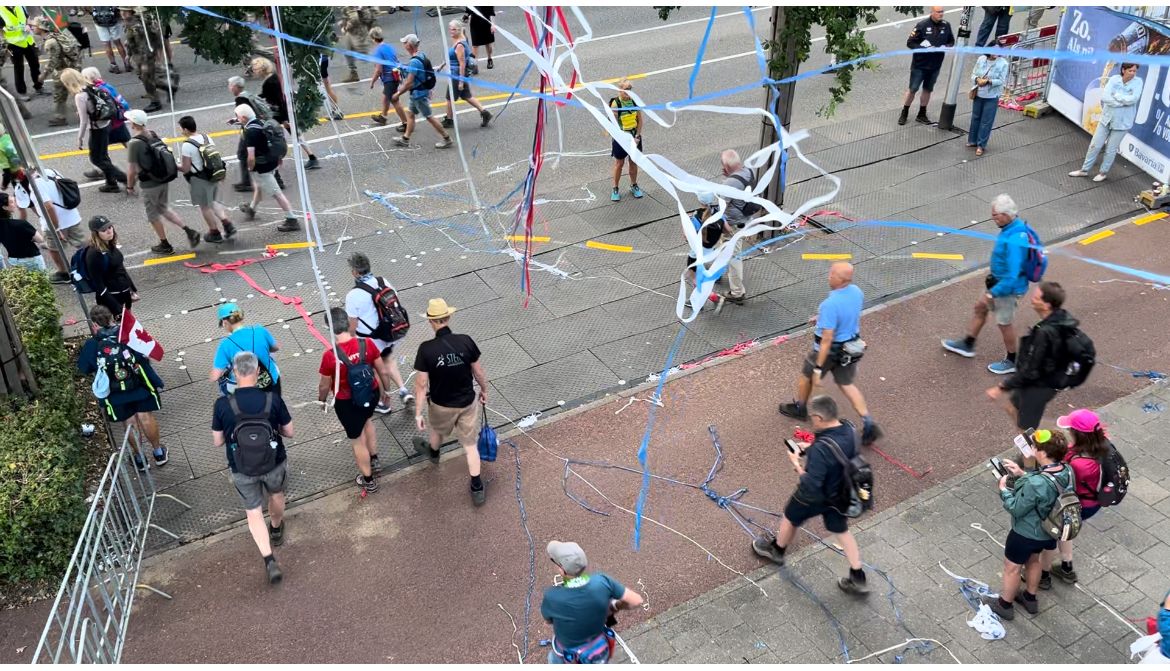Together with the Rijnstate hospital in Arnhem and the German hospitals Evangelisches Krankenhaus Düsseldorf and MEDIAN AGZ Düsseldorf, Radboudumc in Nijmegen is working on setting up these new aftercare programmes. This is part of the Interreg Deutschland-Nederland project BEAT THE RYTHM, which combines knowledge from Germany and the Netherlands on atrial fibrillation, exercise and telemedicine, so that exercise at home can be implemented as part of the care process.
Various measurements were taken from participants before and during the Nijmegen Four Days Marches. The first measurements were taken in April, after which the effect of preparation on cardiac arrhythmia was investigated, with the number of kilometres walked increasing significantly in the run-up to the Four Days Marches. During the 4Daagse, the project partners measured the effect of walking for 7-11 hours a day, four days in a row, on the body and heart rhythm. Of the total of 140 participants in the study, 60 people walked the Four Days Marches. They wore a Philips ePatch: a wearable heart rhythm monitor in the form of a plaster on the chest. This sensor is smaller and more comfortable than traditional monitors and continuously measures the heart rhythm. Special software and AI make the sensors easy to read. In addition to heart rhythm data via the ePatch, data on blood pressure and blood values were also collected. The German partner Evangelisches Krankenhaus Düsseldorf also performed heart echoes at the research location next to the Wedren, the finish line of the 4Daagse.
Now that all this information has been collected, the next steps consist of analysing and interpreting all the data. The conclusions that can be drawn from this will be used to improve care and related advice on exercise for people with atrial fibrillation. An aftercare programme for German and Dutch hospitals and a cross-border centre of expertise for atrial fibrillation are the ultimate goals of the project.
The BEAT THE RHYTHM project will run until the end of May 2027 and has a total budget of €717,398.49. The partners are contributing €284,817.10 of their own funds. The project is being carried out as part of the Interreg VI programme Deutschland-Nederland, and €432,581.39 is being co-financed by the European Union, the Ministry of Economic Affairs, Climate Protection and Energy of North Rhine-Westphalia and the Province of Gelderland.

